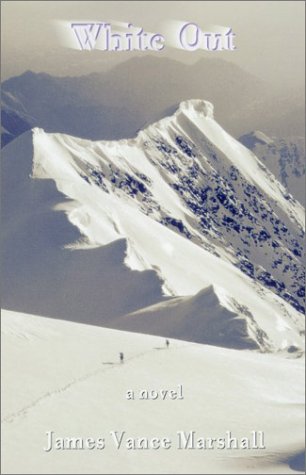White-Out
With its main action set in WWII, White Out explores the conflicts of man vs. nature, man. vs. man, and man vs. himself. Author James Vance Marshall excels in descriptions of nature’s grandeur, the continent of Antarctica, the aurora australis; he compares the onset of a snowstorm to the advance of an invincible army.
In Part 1, a first person Royal Navy psychiatrist questions young Lieutenant James Lockwood, rescued as the sole survivor of a mission to Antarctica. Lockwood professes amnesia, and appears so distraught the doctor recommends he be posted to a theatre of war not terribly demanding.
In Part 2, Lockwood’s experiences are detailed in the third person past tense. He believed it was sacrilege to bring the war to such a beautiful place. His unit was on a secret mission, ostensibly to build a weather station, but in actuality to find uranium, whose military application they didn’t fully understand.
A German sub destroys their base camp, leaving alive only Lockwood, petty officer Ramsden, and commanding officer Ede, who is critically wounded. The reader cares about the characters, noble in a quiet way as they trudge toward the coast.
In one astute observation, Marshall comments that Homo Erectus is a creature of the herd. When Lockwood is left totally in isolation, he and the author face their greatest challenge: Lockwood to find companionship, and the author to keep us interested in a long solo. Both meet the challenge.
Throughout his ordeal, Lockwood learns the territorial code of nature: no bloodshed, no killing. When at last he is rescued, he no longer feels at home among Homo Sapiens.










